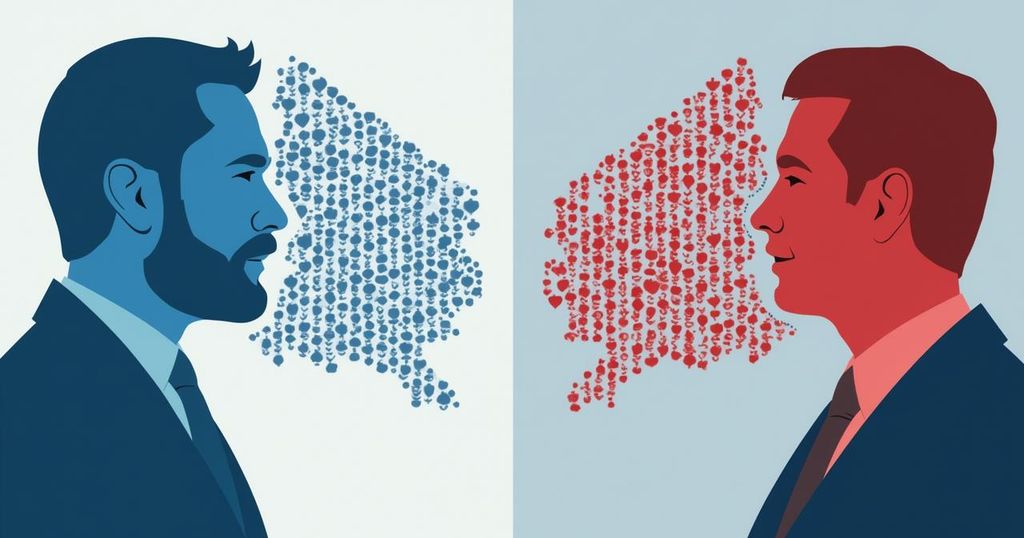The discourse surrounding the election reflects deep divisions among voters regarding central issues. Opinions vary on the impact of Donald Trump’s candidacy, with some polls suggesting a preference for him concerning the economy and crime. However, there is also significant concern about the erosion of democratic values in the context of current electoral choices. The psychological underpinnings of political allegiance complicate the narrative, as the electorate navigates this intricate landscape in the lead-up to the election.
In the discourse surrounding the upcoming election, various opinions alongside stark contradictions arise among voters regarding the central issues at stake. Eugene Robinson’s commentary highlighted a perceived dichotomy between public sentiment and the factors influencing electoral competition, particularly emphasizing the polarizing figure of Donald Trump. His appeal energizes his base while simultaneously alienating segments of the electorate, particularly educated voters and women. Had the Republican Party selected a more conventional candidate, they might have been positioned to secure a decisive victory in the presidential race, rather than finding themselves in the current tightly contested scenario, which many attribute directly to Trump’s contentious legacy. Moreover, numerous polls indicate that voters regard Trump and the Republican Party as more adept at addressing key issues such as the economy, crime, and immigration. The juxtaposition comes into play when considering the overall statistical analysis of the race, echoing memories of prior elections where economic turmoil decisively influenced outcomes. Yet, a critical view is presented of the current media landscape, suggesting that support for Vice President Kamala Harris often stems from an aversion to Trump rather than from an endorsement of her policies, which some deem radical and disconnected from mainstream concerns. Additionally, as polls illustrate a shift in voter priorities—shifting from democratic preservation to pressing economic issues—it raises concerns about the electorate’s valuation of democratic norms. Critics allege that Trump’s historical undermining of democratic values contributes to an unsettling trend wherein the sanctity of free elections becomes secondary to prevailing economic anxieties. Furthermore, studies assert a neurological basis for divergent political ideologies, whereby neurological differences between conservatives and liberals manifest in susceptibility to certain emotional and cognitive biases. These findings amplify the understanding of Donald Trump’s political support base, which appears to thrive on authoritarian tendencies and the pursuit of scapegoats for their grievances. In conclusion, as the election approaches, the electorate finds itself entangled in complex webs of sentiment, ideological leanings, and pressing policy considerations. The forthcoming contest is not merely a referendum on Trump’s presidency but a deeper examination of the public’s allegiances toward core democratic principles in an era marked by divisive politics.
The ongoing dialogue about the current electoral climate underscores the polarization of American politics, primarily influenced by former President Donald Trump’s controversial approach to governance. The discussion encapsulates a broader examination of voter sentiments concerning critical issues such as the economy, crime, and immigration, while starkly contrasting those with the relevance of democratic integrity. Polling data suggests a diverse array of voter priorities that reflect significant ideological divides, further complicated by a media landscape perceived to bias certain narratives. With the stakes high, the election is as much about individual candidates as it is about the values and principles underpinning democracy itself.
In summary, the complexity of the upcoming election extends beyond individual candidates and issues. It reflects a broader societal struggle to reconcile economic priorities with the vital need to uphold democratic values. As both voters and commentators reflect on this intricate electoral landscape, the implications of their choices will resonate throughout the nation and potentially redefine the principles that govern American society.
Original Source: www.washingtonpost.com






